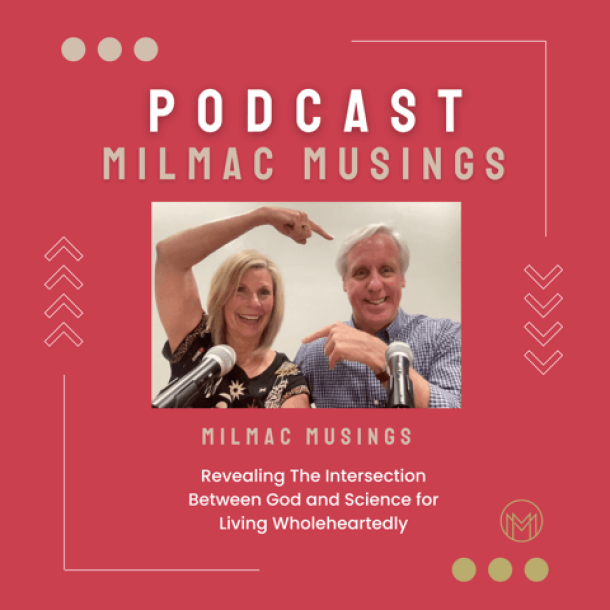Trust is the foundation of healthy relationships. It's the glue that holds relationships together through challenging times. However, after trauma, your sense of trust and security shatters, and it becomes hard to trust.
This article discusses what happens when one violates trust in relationships, three ways of unhealthy coping, and some beginning steps for learning to trust again.
This is the fifth post of a blog series offering practical steps rooted in Christ and biblical principles to help you build resilience and trust in God's plan. Following these steps, you'll learn to navigate life's trials with faith and confidence, leaning on Christ's everlasting support.
If you missed it, click to read Understanding Biblical Resilience, the first article in this series.
If you missed it, click to read Building A Resilient Faith: Jesus Our Model, the second article in this series.
If you missed it, click to read Trusting God, the third article in this series.
If you missed it, click to read Trusting God with His Plan After Trauma, the fourth article in this series
Trusting God
Trust* in the Lord with all your heart, and lean not on your own understanding; In all your ways acknowledge* Him, and he shall direct* (make straight and make right) your paths. Proverbs 3:5-7 NKJV *my add
Trust means to believe. God reveals Himself as trustworthy and faithful; He is unchanging. It is part of His character. People, on the other hand, give us reasons to believe in them or not. Trust with others is built through experiences and consistent, reliable behavior.
Acknowledging God involves knowing Him intimately and maintaining daily contact through prayer. By recognizing Him in all our decisions, He promises to guide our paths toward fruitful and life-giving endeavors.
Direct is to make straight and make right. God will straighten the path for those who are devoted to Him and trust Him.
The only way for us to trust and acknowledge God and have Him direct our path is through an intimate, trusting relationship with Him.
Trust: The Foundation
Trust is something we practice daily. When you get in your car, you trust it will get you from A to B. When you work, you trust that you will receive compensation. When dining out, you trust you will enjoy good food. When you put your money in the bank, you trust it will be there to withdraw when needed. When someone tells you they will love you, you want to trust they will.
The point is that in every moment of life, we are exercising trust.
“Trust is the glue that holds people together through life’s most difficult experiences. It holds relationships together, but without it every interaction and every decision becomes a threat.” -Patrick Springle
As shared through Trusting God With His Plan, after being violated, it can be challenging to want to run into God's arms, much less trust Him or anyone else.
When Trust Is Violated
When someone experiences physical, sexual, or emotional abuse, their trust is shattered, like a glass that falls and breaks into a million tiny pieces. These wounds make it seem almost impossible to pick up the pieces and put them back together. One is led to a sense of desperation with undermined security and trust. In response, the traumatized seek stability and try to control their life in any way they can to get what they perceive they need.
People with shattered trust and who have control as their guiding force do not build healthy relationships.
They are not positive or trusting, and they feel desperate and disillusioned.
According to counselor Patrick Springle, three different problems arise for traumatized people.
Three Kinds of Trust That Occur
- Blind Trust: When someone tries to control others by doing whatever it takes to please them, they often become blind to the hurt, anger, lies, and manipulation directed at them. In their craving for love, they end up trusting the untrustworthy. "I had blind trust in my life. Desperate for love, I took matters into my own hands to find what I needed. Thankfully, by the grace of God, He found me and showed me the Way, Truth, and Life."
- Aggressive Distrust: Some people control others through domination. They yell, curse, condemn, and blame while using charm to get what they want. This mix of charm and venom can throw people off balance, especially those who have been traumatized.
- Passive Distrust: Some people give up on relationships and distance themselves from others, believing that the pain is too great and the situation is hopeless.
Have you experienced relationships like this?
Has anyone come beside you to help you heal?
Are you one who left others imbalanced, reeling in pain and confusion?
Are you willing to get help to heal?
Learning to Trust Again And Have The Foundation for Healthy Relationships Is Attainable
Even those with harrowing pasts can learn to trust again. Transforming your mind takes diligence, and doing so with the Truth is crucial. A fourth kind of trust can be learned, which is the foundation for healthy relationships.
Perspective trust is:
- Understanding that only some people are trustworthy.
- Involves knowing that trust is earned through consistent, honorable, and ethical behavior.
- Accepting the harsh reality that people you love will sometimes disappoint you.
Lastly, but most importantly, perspective trust is knowing that God will never let you down.
In our next article in this series, we plan to cover four ways to learn to trust and build the foundation of healthy relationships after trauma.
At Destined for Glory, we are committed to walking with you on your healing journey. You are beloved, valuable, whole, and courageous in His sight. Trust in His plan and find peace in His presence, knowing He is always with you, ready to heal and restore your heart, mind, soul, and body.
If you are not a victim of trauma but know someone who is, you can play a crucial role in their healing journey. Offer a listening ear and validate their experiences without judgment. Please encourage them to seek professional counseling and spiritual support. Please educate yourself about trauma to understand their struggles and needs better. Be patient and compassionate, offering practical help, such as accompanying them to appointments or providing a safe space to talk. Above all, pray for them and remind them of God's unwavering love and presence in their lives. Your support can significantly impact their path to healing and restoration.







